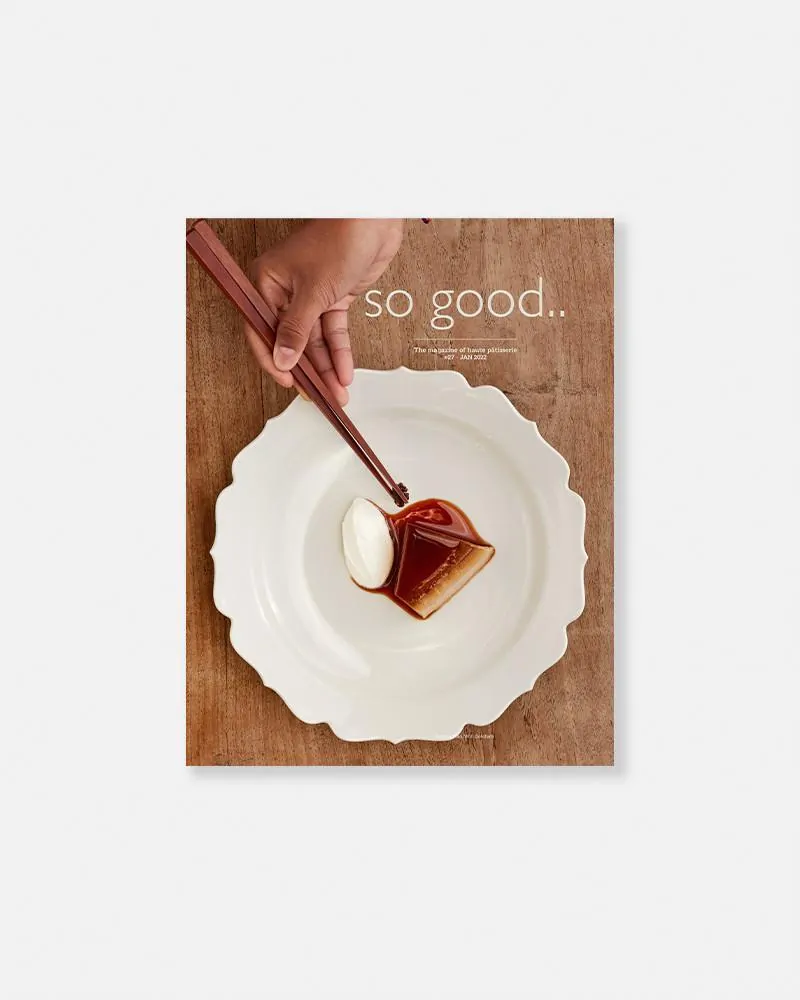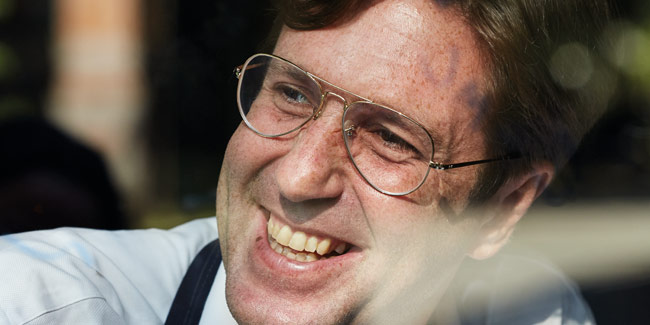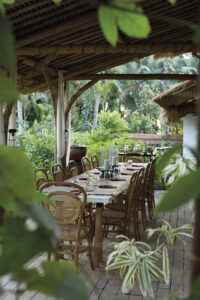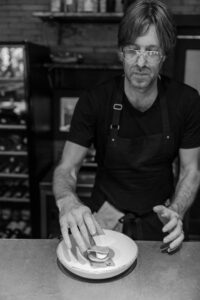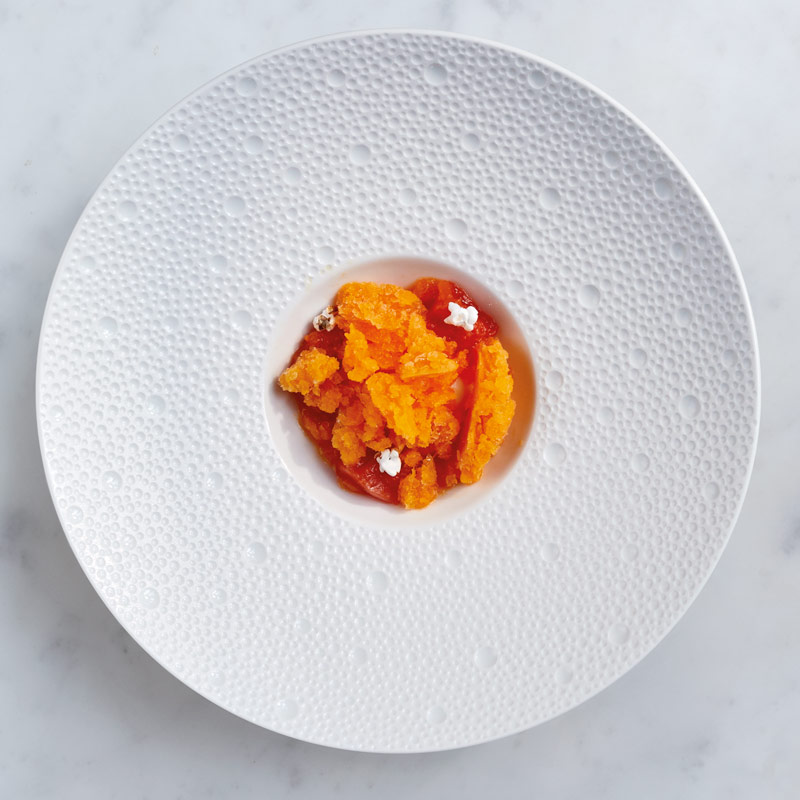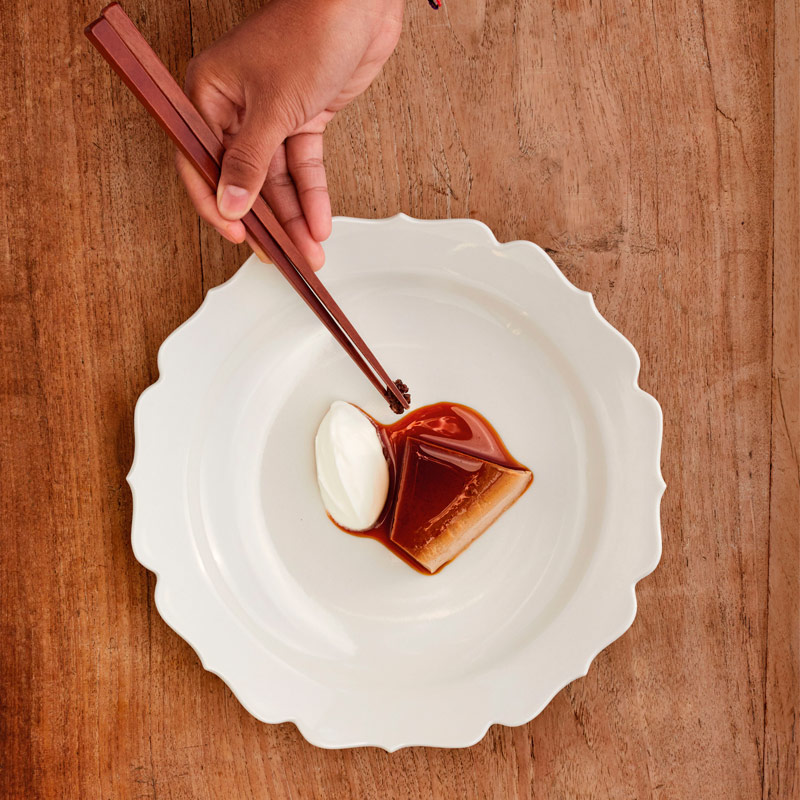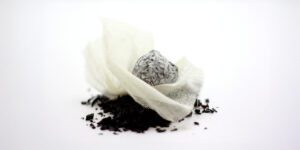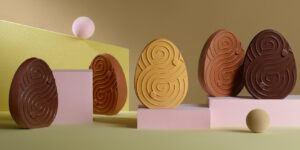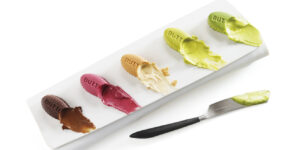Categories Pastry Chef Articles
Will Goldfarb: ‘The real luxury is having time and space –the rest is just money’
While in Paris, he went to a bookstore to buy a book by the legendary chef Fernand Point and, on the shelf, right next to the book he was looking for, he came across The Flavors of the Mediterranean, by Ferran Adrià. And that changed everything. He didn’t stop until he was admitted to El Bulli, where he worked side by side with Albert Adrià. After numerous destinations around the world, he had his own restaurant in his beloved city of New York, until 10 years ago he moved to Bali. There he runs his own dessert restaurant, Room4Desserts, in the middle of a 3,000 square meter garden, with 300 varieties of plants and 100 types of trees that nourish his desserts. Will Goldfarb returns to the pages of so good.. magazine (so good #27) eight years later, after picking up The World’s Best Pastry Chef 2021 award, as part of The World’s 50 Best Restaurants. He welcomes us at the Chocolate Academy in Barcelona, together with Ramon Morató, a stop on his European tour after receiving the award. He is a good conversationalist, reflective and convinced he is on the right path.
Will, are you the best pastry chef in the world? ‘No, but my team are the best in the world,’ he answers.
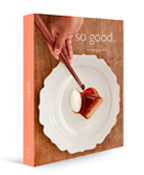
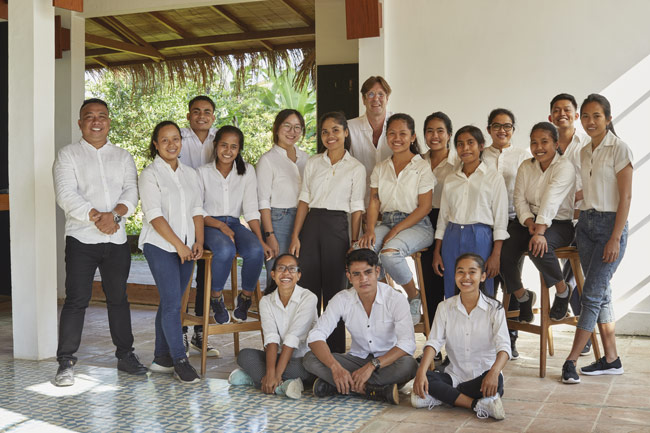
Are you the best pastry chef in the world?
In my house I’m the third (laughs). No. I am comfortable with my skills, but there are a million professionals who can be the best pastry chef in the world.
And why were you chosen?
I don’t know, I guess because of the work developed during my career, because of the sacrifice made to get here. We improve every day and tomorrow we will still be better. But being the best of all is something else. It is really an award that does not mean much to me, because I work for my customers, not to get an award. I do value it for my team, made up almost entirely of women, with an average age of 21, and who come every day from their home an hour away from the restaurant. My team are the best in the world. Not me.
No one on my team comes from a pastry school or another Michelin restaurant. They come from their village and they are trained here. It’s our team, but it’s also our family. I think the award has to do with the fact that we are doing something different that deserves consideration.
And what makes it different?
We have premises of only 100 m2, it’s not much but it’s enough, which is in the middle of a 1,000 m2 garden. And now we have added 2,000 more meters of more wild or regenerative garden, so that’s 30 times more natural surface than built surface. We grow more than 300 varieties of plants and have more than 100 types of trees. But this is not a farm, but a restaurant. We need a whole year to get just 3 ml of clove essential oil. The important thing is not the production, but to do the process. Knowing the process allows us to explain it to our producer friends in the area so that they can do it for us. We have learned to make a gummy without pectins or texturizers, only using the core of the aloe vera plant, which is very gelatinous.
‘It is a philosophy of life and work – knowing how to do things and teaching young people. Our team is made up of people who start with us when they are 17 years old and by the time they are 21 they already know our way of working’
It is also a way of building community, isn’t it?
It is a philosophy of life and work – knowing how to do things and teaching young people. Our team is made up of people who start with us when they are 17 years old and by the time they are 21 they already know our way of working. In the end, we do nothing but protecting our people and protecting the community to which we belong. Community building is everything to us. And then comes pastry.
Is the goal to work only with fresh products?
It is not a horrible thing to work with a seasonal fruit jam, nor with a frozen product, but it is better to work with fresh products, and the best thing of all is to do everything yourself. That way you understand and control everything, and that way you appreciate what a product is worth. If you need a year to pick a few sorghum kernels to make a popcorn from this sorghum, you know what that costs. And it’s not the same to open a package or a jar. This is our way.
‘We do nothing but protecting our people and protecting the community to which we belong. Community building is everything to us. And then comes pastry’
One question we ask ourselves and other chefs is: Why has pastry not achieved the social prestige of cuisine?
I suppose it has to do with the product. In haute cuisine only 30 years ago it was normal to use frozen fish and non-premium products. Today it is unthinkable. In patisserie this is still not the case. And perhaps it also has to do with the price. If the meat is worth more than the dessert, it will always be more important, or so the customer will perceive it. It’s true that the pastry chef is in the background, now and 30 years ago, except at El Bulli, where pastry was the driving force of the restaurant. But it happened before with Lenotre, and before that with Escoffier and before that with Carême… In other words, pastry has historically been the driving force of the kitchen. In my opinion, the pastry chef is at the top, as a designer of the structure of the dishes and a developer of techniques. In recent years, there are many techniques and ways of working in the kitchen that come from pastry, such as using the scales to weigh everything.
You ask yourself on your website, what is a dessert? But you don’t answer.
It is an open question and difficult to answer. It’s like they say, something that I don’t know what it is but when I see it I know what it is. I don’t know how to explain it but I recognize it. The same thing happens with dessert. We, unlike any other restaurant, have two thirds of the menu with sweet dishes and one third with savory dishes. And the sweet menu has the minimum essential and unrefined sugar. And the curious thing is that in order to reduce the perception of sweetness to a minimum, we have also had to eliminate salt, because salt enhances the sweetness. But desserts are desserts.
‘There is something objective, and that is that with less sugar and fat you feel better’
And does this reduction of sugars and fats have to do with making healthier desserts?
There is something objective, and that is that with less sugar and fat you feel better. It’s not a question of saving the world or making it more sustainable, and we pastry chefs are not doctors either, but your digestion is better if you eat less fats and sugars, and more plant-based products. From there, our job and our goal are that you enjoy eating what we propose, not that it is more or less healthy. On our scale, the first thing is that the dessert is delicious, the second that it is beautiful and the third, perhaps, that it is interesting.
You try to give your desserts a narrative, a story, personal experiences, as if it were a literary work, could it be said that pastry is an art?
It is art but it is also craft. There is a part of manual work and there is a part of art. For me it is not relevant what weight has one or the other. What is really important is the process itself, how you work with the ingredients and how you create that dessert. It is true that we work from specific experiences and themes. For example, the ingredients that were used for black magic, alchemy, etc. But we don’t want to bore the customer with the discourse behind the dish. If they are interested, we tell them about it, and if not, they can enjoy it and that’s it. A subject that interests us a lot is botany, its benefits and the healing properties of plants. All this is fashionable all over the world, but I have the origin right there. I don’t have to ask for turmeric over the phone, I just have to go out to the garden and pick it. Mind you, I have to plant now what I will need in a year and wait for nature to do its work.
Is having all those plants and herbs in your garden a luxury even if it’s not caviar?
Yes, it is another idea of luxury. For me the real luxury is having time and space – the rest is just money. You can have the sensibility to work in another way, but if you are in a restaurant in any city, where you have to work 100 hours every week, in a 20 m2 space, where you don’t have a garden because there is no space… it’s impossible.
‘On our scale, the first thing is that the dessert is delicious, the second that it is beautiful and the third, perhaps, that it is interesting’
Eight years ago, when we interviewed you, you were working on the fourth meringue. Neither Italian, nor French, nor Swiss. Did you get it?
Yes, it’s the Balinese meringue. It’s all in scientific publications. The idea is that it wasn’t just the egg that brings air to the meringue, but the water. And since what we wanted was a meringue with very little sugar, we found the ideal ratio of 1:1:1, sugar, egg whites and water. The sugar already provides the necessary acidity, especially palm sugar, which has a very low pH, only 4.3. We then work it as if it were the base of a sorbet, heating it to 84ºC and cooling it by whisking it at 4ºC. It is stable, has no syneresis, more natural, without stabilizers or emulsifiers, it can be flavored with local produce…for us it is the perfect meringue. For Carême, pastry was the main branch of architecture. And for me, meringue is the backbone of pastry.
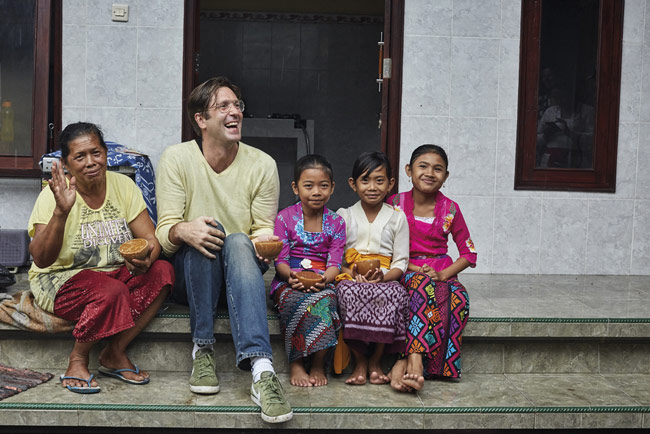
What is the best and worst thing people have said about your desserts?
The best thing is when people say that one of our desserts reminds them of their childhood, and curiously enough it has happened to me with people from different parts of the world, who have nothing in common. I don’t know, maybe it’s the textures, the aromas, the combination of flavors?
And the worst, well, a lot of things. Maybe when I was in New York and a journalist wrote that the worst decision of the year in the city was that someone had hired me as a pastry chef.
A single word to define Room4Desserts
Joy.
